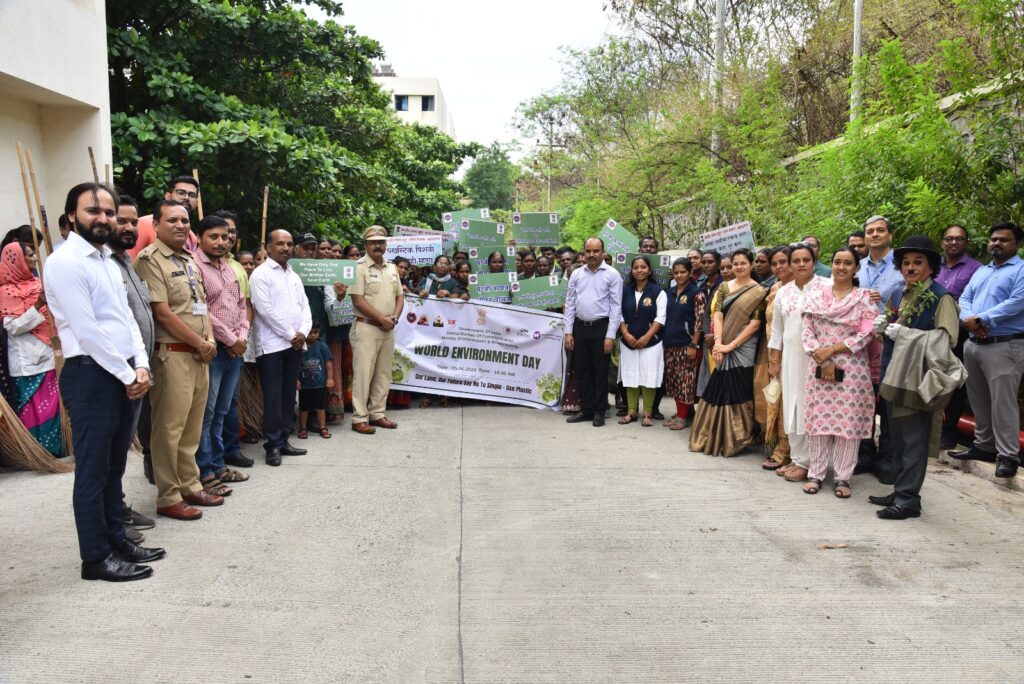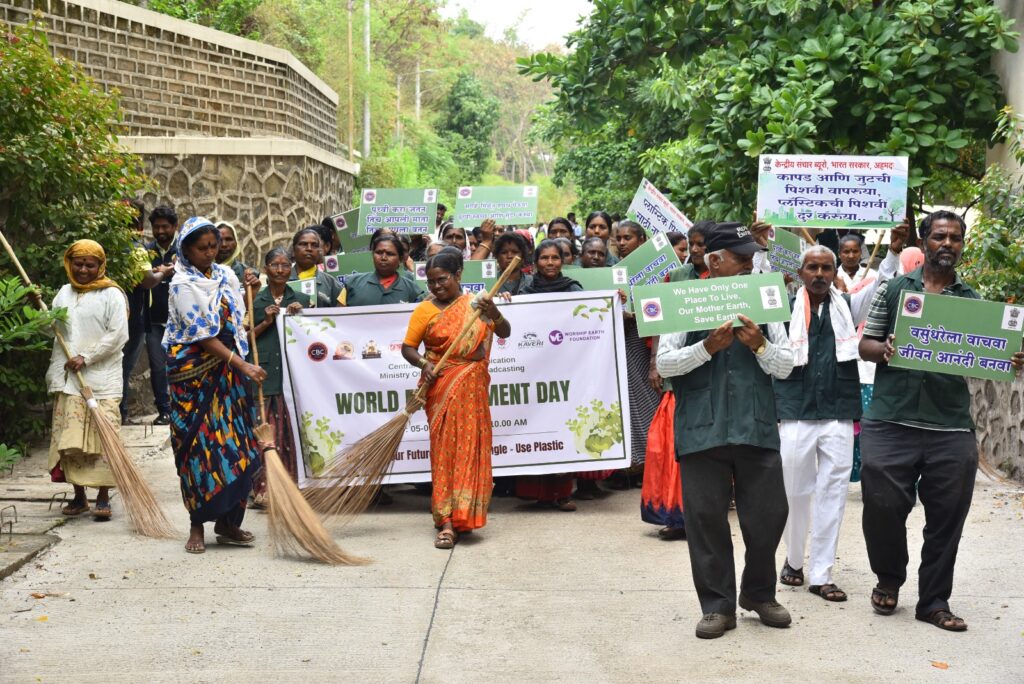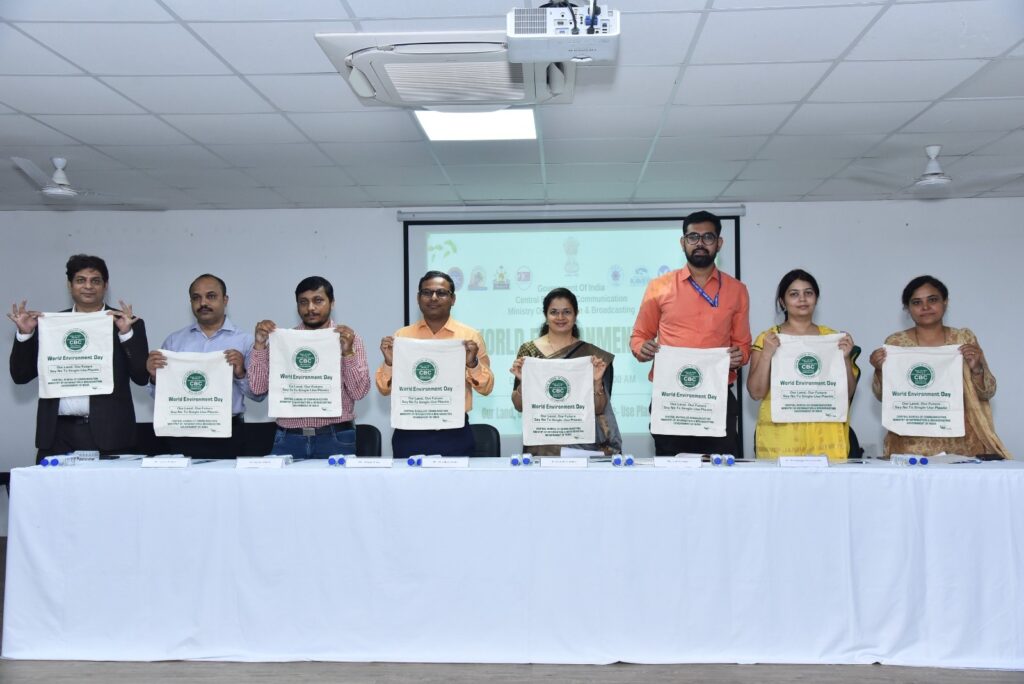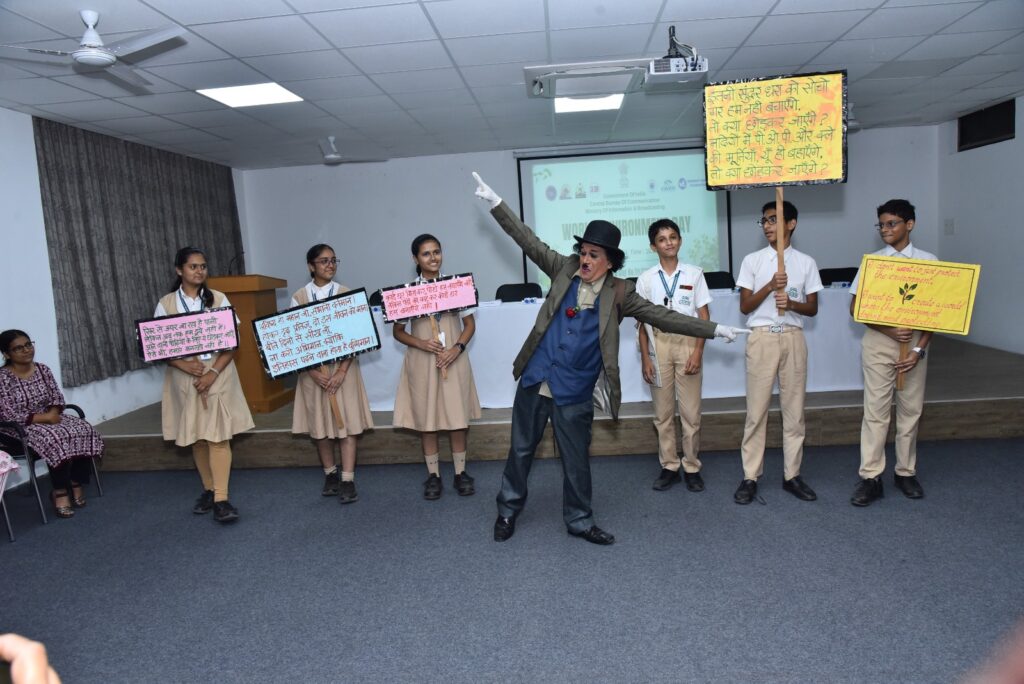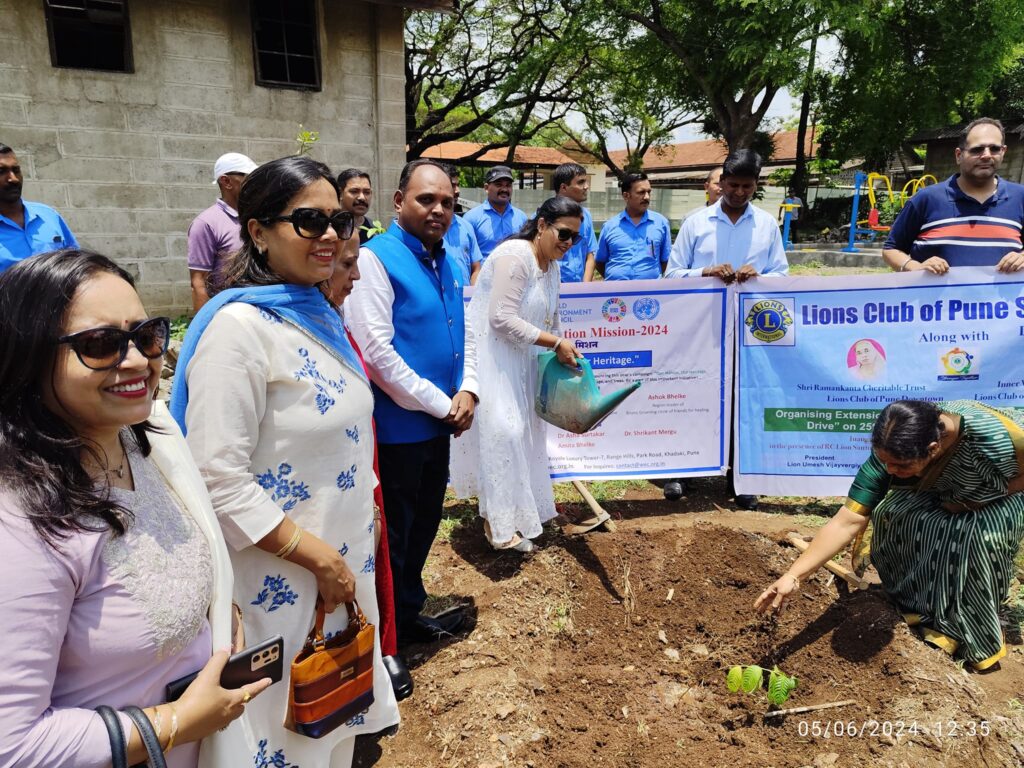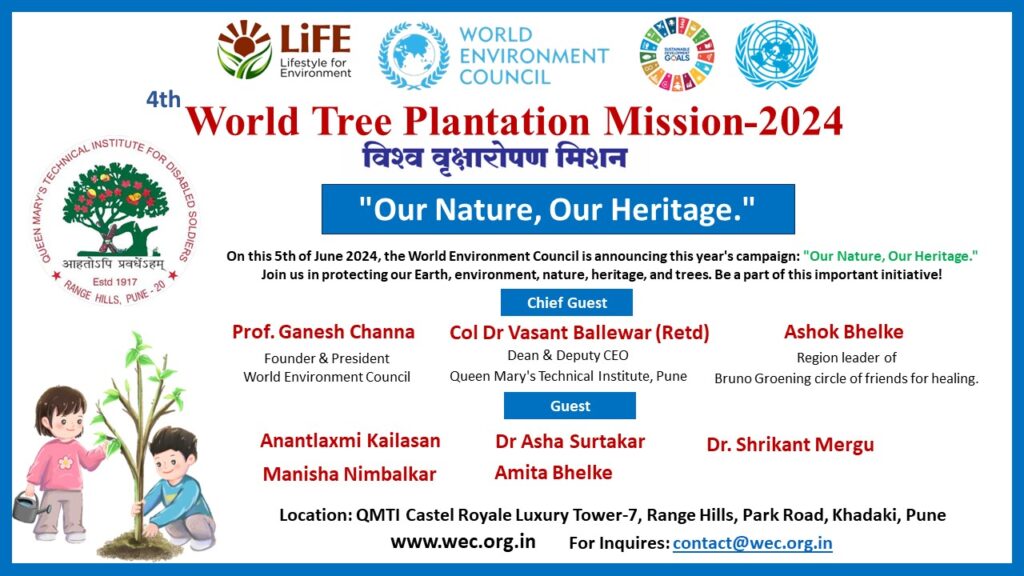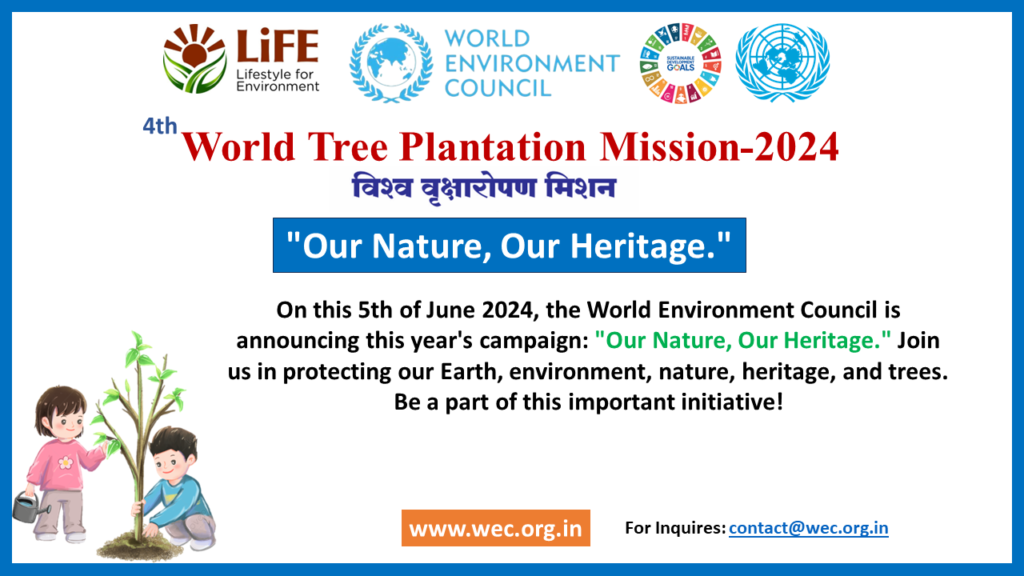Read the full interview now and share with your sustainability
Companies now require expertise in sustainability and ESG reporting as well: Prof. Ganesh Channa
Prof. Ganesh Channa, President of the World Environment Council, has a proven track record of environmental action. He’s a visionary leader dedicated to building a sustainable future for our planet. His organization spearheads environmental initiatives across the globe, from planting over a million trees to collaborating with governments on policy changes. In this interview, Prof. Channa shares his insights on how we can all contribute to a greener tomorrow.
Team Reblue: Hi Ganesh Sir, thank you for interviewing with us. So, as you are president of the World Environment Council, to start with, we would like to know what is the objective of the organisation and how long it has been running.
Prof. Ganesh Channa: Yes, it all started in 2019.
We began with the intention of taking on a single project. During that time, I discussed the idea with colleagues and friends. We decided to focus on environmental issues because we felt a strong connection to nature, something I’ve felt since childhood. That’s why we decided to establish a large organization to work on these issues.
Our organization started in Delhi and Solapur. We officially began operations in 2021, but we’ve been working on this platform for the past five to six years.

Currently, we have volunteers and official members in over 120 countries. We function as a non-profit organization.
Our vision is to create a sustainable future and promote social, economic, and environmental well-being in communities around the world.
Our mission is to work together, like stewards of our planet, to create a cleaner, safer, and more eco-friendly world by improving local environmental quality. This is the core of our vision and mission.
Team Reblue: Given your presence in over 120 countries, a pretty large footprint, can you elaborate on how you collaborate with your members? Do you primarily work with governments, businesses, or other entities to achieve your vision of a sustainable future?
Prof. Ganesh Channa: Basically, my idea was to work globally. So, we decided to undertake some projects and connect with those working on environmental issues, like this one. We’d promote it using a major social media platform to maximize benefits. Think Facebook or LinkedIn – these platforms are ideal.
Through these platforms, we can achieve our goals. We can connect with people worldwide, and some might even join us as official members. Others might volunteer their time and effort.
This year, we initiated a few environmental projects. This one, for example, is our first.
This is now our fourth year! We’ve actually planted over 10,00,000 trees across India with our volunteers and supporters.
Essentially, this is an ongoing mission. We plant trees in various locations, ensuring we have the proper information and record everything with evidence. This year, we will implement different projects and activities.
We’ve actually planted over 10,00,000 trees across India with our volunteers and supporters.
Essentially, this is an ongoing mission. We plant trees in various locations, ensuring we have the proper information and record everything with evidence
Team Reblue: What are the participation opportunities for members, and how can members from different countries actively participate?
Prof. Ganesh Channa: Yes, webinars and conferences are possibilities. We can definitely plan these. We’d provide all the information, including banners and other materials. Organizations could then implement the content based on their needs.
The challenge is that we can’t be physically present everywhere.
That’s why we want to connect with everyone. Organizations can connect with us, and we’ll share information about our projects, including those we plan to implement this year. This information will be sent via email and social media to those who connect with us. Organizations can then begin projects using both our banner and their own.
Team Reblue: Given that the company secretary and chartered accountants will likely be involved in sustainability reporting and regulatory matters, how, in your experience, can they contribute to a company’s sustainability goals? In other words, what specific roles can chartered accountants and company secretaries play across various organizations?
Prof. Ganesh Channa: Absolutely. However, there are already existing guidelines like ACD or ACB. These guidelines are used for various reports, including medical reporting, environmental, social, and sustainability (ESD) reporting. All of these reports are typically prepared based on these frameworks.
Accountants can get involved through social audits. There’s a separate platform for them to register and work as social auditors.
Company secretaries are also involved in similar ways.
Finally, we launched our own ESG reporting course last month, including modules on both ESG auditing and ESD reporting. The curriculum, content, and syllabus were all developed by us, along with selecting qualified trainers.
This was a successful pilot batch – a five-day online ESG Sustainability reporting course that recently concluded. We’re operating through an online model, and this batch had students from Arab countries and France, demonstrating successful execution on our own platform.
The demand for qualified professionals goes beyond social auditing. Companies now require expertise in sustainability and ESG reporting as well. There’s a high demand and many recruitment opportunities in these areas, including UNC reporting and sustainability reporting more broadly.
Team Reblue: Are the company secretary and chartered accountant primarily responsible for auditing the sustainability report? Additionally, must the report comply with the specific region’s reporting standards?
Prof. Ganesh Channa: Yes sir. The issue is that there’s a shortage of qualified social auditors. This is a significant requirement globally and in India, as companies often lack experienced and qualified personnel in this area. Currently, across India, there are only around 500 social auditors.
However, the demand for qualified professionals goes beyond social auditing. Companies now require expertise in sustainability and ESG reporting as well. There’s a high demand and many recruitment opportunities in these areas, including UNC reporting and sustainability reporting more broadly.
Team Reblue: When you mention social audits, do they focus solely on the social aspect of ESG (Environmental, Social, and Governance) within a company’s sustainability strategy and performance? Or does a social audit encompass all three pillars of ESG?
Prof. Ganesh Channa: Yes, ESG is a vast subject, and there aren’t necessarily specialists in every single aspect. This is because countries implement frameworks based on their specific needs. There are various frameworks available, such as GRI (Global Reporting Initiative), SASB (Sustainability Accounting Standards Board), and TCFD (Task Force on Climate-related Financial Disclosures).
An experienced ESG auditor might also be an expert in ESG reporting. Our course focuses heavily on the practical aspects of ESG reporting. This is crucial because real-world applications involve following industry-specific government norms and guidelines. Since readily available information might be limited, we use case studies and practical exercises to help students, as well as those enrolled in our ESG reporting course, understand the process.
Team Reblue: In your opinion, what are the primary factors driving organizations to adopt sustainability initiatives? Are regulations the main reason, or are there other significant motivators?
Prof. Ganesh Channa: Yes, there are many organizations like KV and others working on sustainability implementation. However, our focus is different. While some organizations focus on specific areas or sectors, we work across various areas, making our approach versatile. This means we can cater to a wider range of needs.
Additionally, unlike some organizations that operate solely at the corporate or industry level, we work from the ground level up to the corporate level. We even collaborate with the government on sustainability initiatives.
So yes, that’s what makes our approach unique.
Team Reblue: Building on your experience, what are the key drivers for companies to enter the sustainability space and implement related initiatives? Are government regulations the primary motivator, or are there other significant factors you’ve observed in the industry?
Prof. Ganesh Channa: There are already government regulations regarding ESG (Environmental, Social, and Governance) and sustainability. These rules apply to both large corporations and smaller companies. As a result, companies need to provide some level of sustainability reporting.
The government doesn’t necessarily need to directly train candidates. They set the requirements, and based on those, organizations develop curriculums, train candidates, and potentially recruit them for government agencies and sectors.
Additionally, there are SEBI (Securities and Exchange Board of India) guidelines. This year, SEBI is likely mandating sustainability audits and unspecified reporting (UC) for over 2000 companies.
Team Reblue: Earlier you mentioned emerging trends and technologies impacting sustainability. In your experience, which of these trends and technologies do you see as most beneficial for companies on their sustainability journey?
Prof. Ganesh Channa: Yes, it really depends on the company’s needs. There are many existing technologies that can be applied to sustainability reporting and auditing. However, companies may struggle to implement them effectively.
This is why some companies establish their own technology for sustainability reporting. These technologies allow companies to input data, generate reports, and streamline the entire process. While physical boards may still be used, technology offers significant benefits.
Furthermore, technology can save the environment. When industries implement specific technologies following relevant guidance, it becomes easier to track their operations and ensure they align with sustainability and ESG goals. Software plays a key role in facilitating this process.
Team Reblue: Regulations related to sustainability are constantly evolving, with new frameworks emerging and older ones potentially becoming obsolete (like the possible duplication of TCFD after COP28 in Dubai). This can be a challenge for companies. How are companies you work with balancing the need to comply with these evolving standards while also making progress on core sustainability initiatives like reducing electricity consumption?
Prof. Ganesh Channa: There are indeed many frameworks available, but their applicability depends on the specific context. Since India is a vast country with a large population, it may require different criteria and frameworks compared to smaller nations.
Frameworks like GRI (Global Reporting Initiative) and SASB (Sustainability Accounting Standards Board) serve as general guidelines. However, the government continuously updates its rules and regulations based on evolving needs.
For instance, the Environment Protection Act was originally enacted in 1986 but was subsequently updated in 2020. These guidelines provide a common framework for India and potentially other countries as well.
The Environment Protection Act (1986) outlines initial sector-specific requirements, including how to prepare projects, reports, and specific writing formats. Over time, these requirements are updated within the Act.
Therefore, there isn’t a single, specific set of criteria. Instead, a common framework is often used as a starting point.
Many people understand ESG is a broad topic, but lack in-depth knowledge. Organizations often hold webinars and conferences, but the information might not be comprehensive.
Team Reblue: There is a huge gap between the availability of people who understand sustainability and the demand for them in industry. What is the best way to bridge this gap? Many industries, including manufacturing, finance, and others, will require personnel with sustainability expertise. What initiatives are governments and industries taking to address this growing demand?
Prof. Ganesh Channa: Many people understand ESG is a broad topic, but lack in-depth knowledge. Organizations often hold webinars and conferences, but the information might not be comprehensive.
The World Environment Council follows government and UNSDG (Sustainable Development Goals) guidelines. We recently participated in the Ocean Conference in Portugal, and based on learnings there, we’re developing legal frameworks for upper ocean protection. We also submitted water protection guidelines to the Indian government.
Additionally, we offer ESG reporting training. Recognizing students coming from diverse fields like nuclear, finance, manufacturing, etc., we developed a practical ESG toolkit for students. This toolkit covers various sectors, including firecrackers, food processing, footwear, and more. It’s designed to be user-friendly and guide students through practical applications of ESG principles.
Our initiative aims to bridge the knowledge and practical skill gap regarding ESG. Many people confuse ESG with GST (Goods and Services Tax). We leverage technology (Microsoft Excel) to create a user-friendly tool where users can simply input their sector, and the tool provides relevant guidelines and reporting procedures.
This is just one of the initiatives undertaken by the World Environment Council to enhance ESG understanding.
Team Reblue: Our discussion covered existing Indian environmental laws. However, are there any potential gaps in the current legal framework that might necessitate new legislation in the near future? Additionally, what specific legal initiatives do you think would be most beneficial in enhancing India’s sustainability efforts?
Prof. Ganesh Channa: Yes, it depends on the government. The Ministry of Environment plays a crucial role, and they do update environmental laws periodically based on evolving needs. However, it’s important to remember that effective implementation relies on both government action and public cooperation.
Additionally, many countries have their own Environmental Protection Acts, which guide their environmental regulations.
AI can be used to analyze vast amounts of data related to a company’s environmental impact, social responsibility, and governance practices. This data analysis can then be used to generate comprehensive and accurate ESG reports, which are essential for financial stakeholders.
Team Reblue: Given our focus on technology and software development, do you have any specific recommendations for companies like our own – Reblue Ventures? What types of software solutions do you see as most beneficial for the sustainability efforts of various industries?
Prof. Ganesh Channa: Yes, there are definitely possibilities for companies like yours. ESG reporting is becoming increasingly important, and AI technology can be a valuable tool in this area.
For instance, AI can be used to analyze vast amounts of data related to a company’s environmental impact, social responsibility, and governance practices. This data analysis can then be used to generate comprehensive and accurate ESG reports, which are essential for financial stakeholders.
So, exploring the use of AI for ESG reporting could be a good direction for your company.
Team Reblue: Awesome. Thank you for doing this interview and sharing your insights with us! We’re sure our readers will get a lot of value from this.





